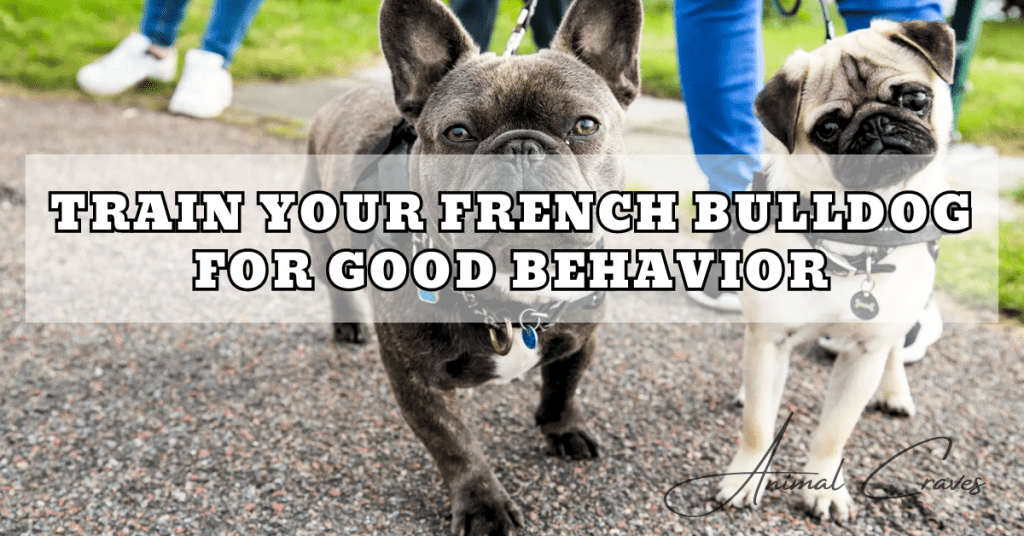French Bulldogs are beloved companions cherished for their playful demeanor and affectionate nature. Training these delightful dogs is not just about teaching obedience but also fostering a strong bond and ensuring their well-being. In this comprehensive guide, we will delve deeper into effective training techniques and strategies to nurture good behavior in your French Bulldog.
French Bulldog Behavior
Basic Traits of French Bulldogs
French Bulldogs, often referred to as Frenchies, are known for their charming personalities. They are intelligent, adaptable, and thrive on human companionship. However, they can also exhibit stubbornness, which requires patient and consistent training approaches.
Common Behavioral Challenges
Like any breed, French Bulldogs may face behavioral challenges such as excessive barking, separation anxiety, and difficulties with leash manners. Understanding these issues is crucial for implementing appropriate training methods.
Importance of Training for French Bulldogs
Benefits of Training
Training plays a vital role in shaping a French Bulldog’s behavior and ensuring they become well-adjusted pets. Some key benefits of training include:
- Establishing Boundaries: Training helps set boundaries and rules, promoting a harmonious living environment.
- Building Confidence: Positive training methods boost a French Bulldog’s confidence and self-esteem.
- Enhancing Communication: Training fosters clear communication between the owner and the dog, strengthening their bond.
Effective Training Techniques
Positive Reinforcement
Positive reinforcement is a powerful tool in training French Bulldogs. This method involves rewarding desired behaviors with treats, praise, or playtime. It encourages the dog to repeat these behaviors to earn rewards, reinforcing positive habits.
Consistency and Patience
Consistency is key in training any dog, including French Bulldogs. Use clear, consistent commands and cues for desired behaviors. Be patient and avoid punishments or harsh corrections, as these can confuse or frighten the dog.
Socialization
Socialization is crucial for French Bulldogs to develop good manners and confidence. Expose them to various environments, people, and other animals from a young age. Positive experiences during socialization help prevent fear or aggressive in different situations.
Mental Stimulation
Provide mental stimulation through interactive toys, puzzles, and training games. Mental exercises keep French Bulldogs engaged and prevent boredom, which can lead to destructive behaviors.
Addressing Specific Behavioral Issues
Excessive Barking
To address excessive barking, identify the triggers and redirect the dog’s focus. Teach a “quiet” command using positive reinforcement and provide alternative activities to keep them occupied.
Separation Anxiety
Help French Bulldogs cope with separation anxiety by gradually desensitizing them to your absence. Start with short periods of separation and gradually increase the duration. Provide comfort items like a favorite toy or blanket.
Leash Training
Proper leash training is essential for walks without pulling or lunging. Use positive reinforcement to reward walking calmly beside you. Practice in low-distraction environments before moving to busier areas.
Potty Training
Establish a consistent potty training routine with regular outdoor breaks. Use positive reinforcement for successful potty outings and clean up accidents calmly without punishment.
Creating a Training Plan
Setting Goals
Define clear training goals based on your French Bulldog’s needs and behaviors. Break down goals into achievable steps for gradual progress.
Designing Training Sessions
Plan regular training sessions that are short, engaging, and rewarding. Use a variety of activities to keep the dog interested and motivated.
Providing a Supportive Environment
Create a training-friendly environment free from distractions. Use positive reinforcement and praise to encourage desired behaviors.
Conclusion
Training your French Bulldog for good behavior is a fulfilling journey that requires patience, consistency, and positive reinforcement. By understanding their behavior, addressing specific challenges, and creating a structured training plan, you can nurture a well-behaved and happy companion.
